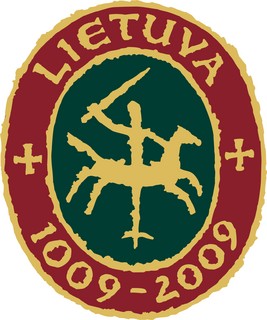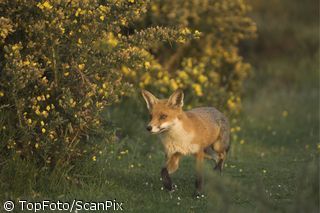Many more workers have arrived in Britain from Eastern Europe since enlargement of the EU in May than the Government predicted, figures showed yesterday
Published:
11 November 2004 y., Thursday
Many more workers have arrived in Britain from Eastern Europe since enlargement of the EU in May than the Government predicted, figures showed yesterday.
Nearly 91,000 people from the eight former Soviet-bloc states that joined the EU registered to work in the first five months after the expansion. The Tories said many others may have taken on a job without registering.
In the run-up to enlargement, ministers dismissed suggestions of a major influx of migrant workers and regularly cited an official estimate of between 5,000 and 13,000 additional arrivals per year.
The latest figures are seven times that forecast in under half the period. However, David Blunkett, the Home Secretary, said they showed that the worker registration scheme, set up to dampen controversy over enlargement, was operating effectively.
Normally, EU citizens can travel freely to settle and work in other member states. But the 15 existing members were allowed to operate controls on migration from the new states for up to seven years.
While most governments imposed restrictions, Britain decided not to. The Government said Britain needed more workers but it faced accusations of failing to protect the country's borders. It decided to establish a registration scheme to discourage new arrivals from working in the black market.
The Home Office said 45 per cent of those who had registered were already in the country. Mr Blunkett said the new arrivals, mostly aged between 24 and 34, had helped to fill job vacancies in hospitality and agriculture, and had legalised some who had not been paying tax.
Šaltinis:
news.telegraph.co.uk
Copying, publishing, announcing any information from the News.lt portal without written permission of News.lt editorial office is prohibited.
The most popular articles
 EU testing shows serious risk of shocks and fire in many lights. Stay safe – turn them off when you go to bed or leave the house.
more »
EU testing shows serious risk of shocks and fire in many lights. Stay safe – turn them off when you go to bed or leave the house.
more »
 The European Parliament has a close relationship with African, Caribbean and Pacific (ACP) states and during the 18th ACP/EU Joint Parliamentary Assembly in Angola, MEPs took time to visit the new city of Kilamba Kiaxi, south of Luanda, where 20,000 apartments are being built.
more »
The European Parliament has a close relationship with African, Caribbean and Pacific (ACP) states and during the 18th ACP/EU Joint Parliamentary Assembly in Angola, MEPs took time to visit the new city of Kilamba Kiaxi, south of Luanda, where 20,000 apartments are being built.
more »
 Everyone can fight climate change by not eating meat one day a week, urged Sir Paul McCartney at a European Parliament public hearing on "Global Warming and Food Policy: Less Meat = Less Heat" on Thursday.
more »
Everyone can fight climate change by not eating meat one day a week, urged Sir Paul McCartney at a European Parliament public hearing on "Global Warming and Food Policy: Less Meat = Less Heat" on Thursday.
more »
 Movies of Lithuanian cinema were demonstrated in the Supreme Headquarters Allied Powers Europe (SHAPE) near Mons (Belgium) from November 9 to 11.
more »
Movies of Lithuanian cinema were demonstrated in the Supreme Headquarters Allied Powers Europe (SHAPE) near Mons (Belgium) from November 9 to 11.
more »
 30% of Christmas lights present an obvious and direct risk of fire and electric shocks according to a new report published today by the European Commission.
more »
30% of Christmas lights present an obvious and direct risk of fire and electric shocks according to a new report published today by the European Commission.
more »
 Irish national TV Europe correspondent, Tony Connelly launched his new book “Don't mention the Wars: A Journey Through European Stereotypes” at European Union House, Dublin, on 25 November 2009.
more »
Irish national TV Europe correspondent, Tony Connelly launched his new book “Don't mention the Wars: A Journey Through European Stereotypes” at European Union House, Dublin, on 25 November 2009.
more »
 A wedding for a man and woman in Southern Peru clearly didn't count on the attendance of at least two guests-- family members of the groom's current wife.
more »
A wedding for a man and woman in Southern Peru clearly didn't count on the attendance of at least two guests-- family members of the groom's current wife.
more »
 Day two of the Employment, Social Policy, Health and Consumer Affairs Council was primarily dedicated to health and public health issues.
more »
Day two of the Employment, Social Policy, Health and Consumer Affairs Council was primarily dedicated to health and public health issues.
more »
 A cold and rainy day in Madrid, Spain - at just degrees celsius not the best conditions for a naked demonstration.
more »
A cold and rainy day in Madrid, Spain - at just degrees celsius not the best conditions for a naked demonstration.
more »
 Today, the European Commission adopted a financial package of €275 million to support programmes to eradicate, control and monitor animal diseases in 2010.
more »
Today, the European Commission adopted a financial package of €275 million to support programmes to eradicate, control and monitor animal diseases in 2010.
more »